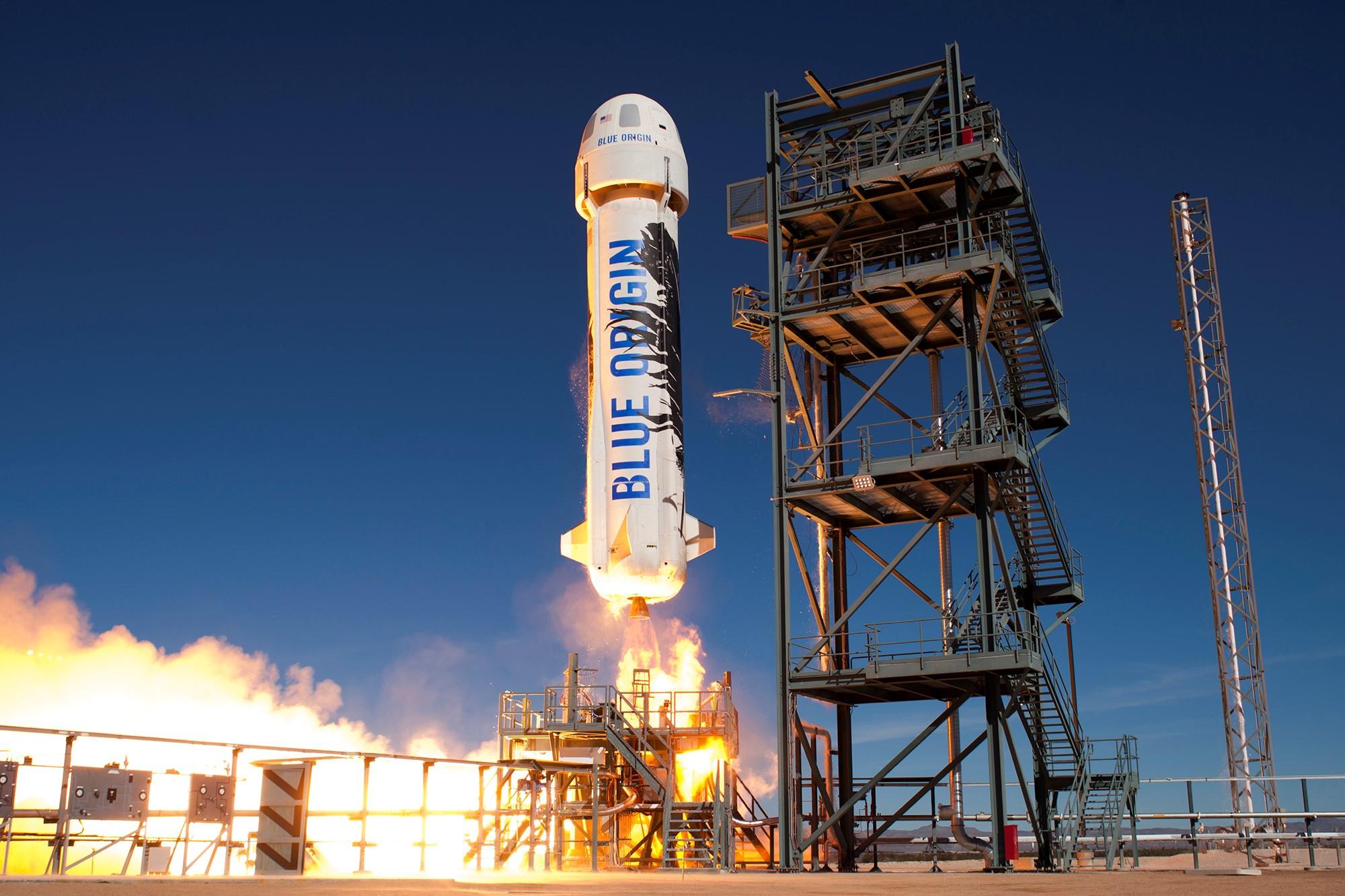

Jeff Bezos poses for a photo with Blue Origin's New Shepard rocket. Related: NASA picks SpaceX's Starship to land Artemis astronauts on the moon (Those protests were denied earlier this month.) And in July, Bezos penned an open letter to NASA Administrator Bill Nelson (opens in new tab) stating why Blue Origin should have won an HLS contract and suggesting that the selection wasn't conducted properly. Instead of accepting NASA's decision, Blue Origin and Dynetics both filed protests with the U.S. But that wasn't a viable option given the relatively low levels of funding Congress has allocated for the HLS work, agency officials said in the wake of the contract announcement.

NASA had previously stated that it would like to award more than one HLS contract so the Artemis program could benefit from competition and redundancy. SpaceX, which will use Starship for the job, beat out Dynetics and the Blue Origin-led "National Team" for the contract. In April, NASA named SpaceX the sole winner of its Human Landing System (HLS) contract that will see the company build NASA's next moon lander, which will bring astronauts to the lunar surface as part of the agency's Artemis program. The infographic depicting SpaceX's Starship points to another major point of contention sparked by Bezos and his company. "His public relations tactic of employing infographics critical of SpaceX seems ham-fisted and tone deaf," Berger said. For example, the latest one, which the company published (opens in new tab) on its website, called SpaceX's Starship deep-space vehicle "immensely complex" and "high risk." This infographic was followed by additional infographics that have poked at other space companies. (Click the top right corner to expand) (Image credit: Blue Origin) (opens in new tab) 18.Ī Blue Origin infographics throws shade at SpaceX's Starship. "Jeff Bezos can take a joy ride to space while he and other billionaires have gamed the system so they pay almost zero in taxes," Warren tweeted Aug. Senator Elizabeth Warren (D-Mass.), who ran for president in 2020, publicly criticized Bezos (opens in new tab) "This underscores the criticism of commercial space as 'rich boys and their toys.'" (Berger's book " Liftoff: Elon Musk and the Desperate Early Days That Launched SpaceX (opens in new tab)" was published in March.) "Bezos has received some serious backlash in the last month, both because he is the richest person in the world, and his first real public spaceflight act was to get on a ship and rocket into space for his own gratification," author and senior space editor at Ars Technica Eric Berger told. Leading up to these suborbital flights and afterward, the public discourse on social media and even in traditional media and broadcast news networks has leaned heavily into discussing whether it is positive progress to see billionaires ride to space in the rockets their companies have built. That's raised questions about who ultimately is benefiting." (Bezos bought The Washington Post in 2013.) "While these entrepreneurs are starting to take private citizens, the passengers so far have been, by and large, extremely wealthy. "There is also a fair amount of backlash to the flights, and the industry more broadly, about the enormous costs of these flights," Christian Davenport, author of " The Space Barons (opens in new tab)" and space reporter for The Washington Post, told. But the fact that it was a crewed launch (with a crew that included Bezos himself), and its temporal proximity to Virgin Galactic's crewed suborbital launch with its founder Richard Branson just over a week beforehand, shone a brighter light on the company. The July flight certainly didn't mark the first time that Blue Origin got major media attention. It was its first trip to space with passengers, a milestone that signified a step toward a future with regular launches of crews of paying customers, including space tourists.īut this milestone, which put Blue Origin into the spotlight, also seems to have been a turning point for how the public views Bezos' company. Since Bezos founded the company in 2000, Blue Origin and its hardworking engineers and employees have been making progress with the company's many space technologies, including its New Shepard vehicle that lofted a crew of four passengers to space and back this July, and its upcoming New Glenn orbital vehicle.īlue Origin's latest launch, which carried Bezos along with his brother Mark, 18-year-old Dutch student Oliver Daemen and pioneering aviator Wally Funk to and from suborbital space aboard New Shepard, was a turning point for the company.


 0 kommentar(er)
0 kommentar(er)
